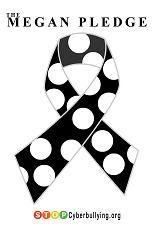When do you tell people your child has autism? How do you explain autism and being autistic?
Joey goes to Sunday School. We haven't gone quite as much lately, because the new building is full of new chairs and new carpets and all the sizing and chemicals that go with new carpet and new upholstery, and apparently I am allergic to it. But he goes.
There were multiple purposes for him attending Sunday school. Primarily, it provides him some religious instruction. That has become less of a reason because the instruction I have been seeing isn't what I was hoping for- it looks far more Baptist than Methodist, and we're a very Methodist family. It also places him in a "normal" setting with non-disabled children. That has gone OK so far; we met with his Sunday School Supervisor and the teachers last year, though this years' teachers haven't been as willing to be trained. Being pat of a church gives him a church family, and a possible support network as he gets older. Also, we have a "contemporary" service and Joey liked to go drum and listen to the music, which we also haven't done lately. When they moved to the new building, it really threw him off, and he's had to start from scratch in getting used to the room again. With my allergies, he hasn't had much opportunity, either.
The Sunday School is fairly informal, with children coming and going depending on whether their parents decided to go to church, including guests from elsewhere. There are regulars like us, and then there are other random kids that come and go, or new families who move in and join.
Usually after Sunday School, we go get some McD's for lunch and try to talk about what they learned-mostly Bible stuff (If you aren't Methodist, you might not understand why I find that interesting enough to note. In other Methodist churches, Sunday School consisted of using modern material to discuss Biblical ideas. You didn't learn the Good Samaritan, you learned stories about modern children who helped their families and neighbors in all sorts of [mostly mundane] ways, thus providing a model for appropriate behavior and values). The boys usually like being in Sunday School and are often in good moods after.
But not yesterday. Yesterday, when I dropped the guys off, they were in pretty good moods; but when I picked them up, Joey was "sad". His teachers said he had been sad all morning. As usually, they had no idea why. However, I had an inkling- a new child was in the room when I dropped him off, and when Joey echoed something at the child, the child had objected (Joey;s very into races and winning races this weekend, and the child told him point blank "But there's no race!" when Joey tried to include him.) From talking to Joey, apparently that was not the end of the incident, and his friend Lucy (a little girl who has been in Joey's Sunday School class for over a year now) intervened ("She played with me").
This is a problem we encounter more in Sunday School than I was originally expecting- partly from my own naivete. I have seen several children not only actively avoid Joey, but being encouraged to do so by their parents. When you mention that Joey is autistic, their faces go hard, and the avoidance is redoubled. Joey's old Sunday School teachers would regularly remind students about autism and that Joey needed do "do his own thing" like move around the room and write instead of draw. (These reminders also served to educate new class members). These teachers seem to want to ignore it. Their idea of inclusion is to simply treat all the kids the same, and since Joey is so "high functioning", hope that he blends in enough to be OK.
The result is that some kids accept him, especially ones that are used to him. And some kids think he's really weird, and avoid him. And some kids think he's so weird, they tell him what they think of his weirdness- and this makes Joey sad.
I think asking Joey to change and "be like everyone else" is unreasonable and undesirable. However, leaving him to the wolves to fend for himself against kids who have never dealt with a disabled peer is also not fair- not to Joey, and not to the other child. After all, when they ostracize Joey, they miss having a cool friend! Though I don't want Joey labeled and seen only for his autism, I don't want him to be excluded by his peers because of ignorance if I can help it. So which approach to take? Telling people he is autistic, or trying to let him "blend in"?
Subscribe to:
Post Comments (Atom)




















4 comments:
This is a touch one. I cannot imagine such neglect of the problem within a church setting. - Wait. That's not true. I can imagine it. But it is so wrong! Is there no one in charge of the teachers who could get through to them?
Hmm, you already know that we've been 'asked to leave' all too often. I think my only positive suggestion would be [as if you don't already have enough to do!] to volunteer to run the Sunday school programme [or be in attendance for a few weeks to intervene, prompt and facilitate] Not exactly ideal I know.
I'm very sorry for the 'sad'.
Best wishes
The sadness Joey feels makes me angry! Not b/c he feels the emotion but b/c he was MADE to feel it by those who could have nipped it in the bud. Can you have a frank discussion with the people running the Sunday school program and ask them how they would handle it if the difference were a more visible one such as cerebral palsy or a visual impairment? Maybe they just don't have the same broad context of disability as the old crew?
It disheartens me to know that other parents give you the gimlet eye when you do tell. WTH?? So much for "jeseus loves the little children" and so on, eh?
Good luck and I hope you share with us how it works out. Meanwhile, hugs to you and your boys.
I'm so sad to hear this. That's a tough question. It definitely sounds like something the Sunday school teachers should address. Thank God for the sweet kids who help make it better.
Post a Comment